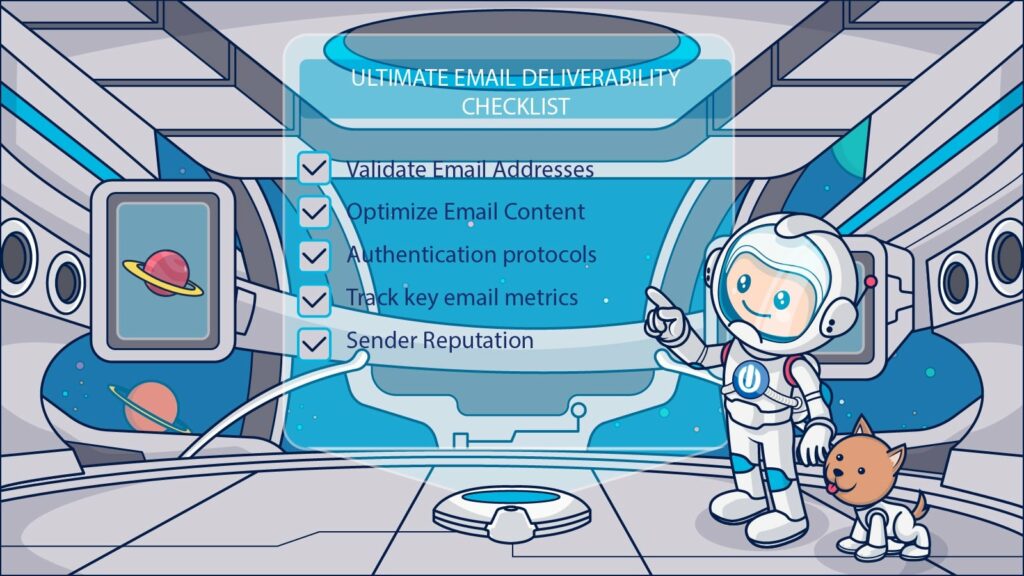The success of an email marketing campaign is dependent on a marketer’s ability to reliably reach the inboxes of their desired audience with their messages.
To ensure that email marketers can avoid such issues and achieve their goals, email marketing platforms provide a variety of features to help them improve deliverability and reach their subscribers.
IP pooling is an example of such a feature.
| Want to jump ahead? What is an IP pool? |

The complete
deliverability
handbook
Read the most significant, most organized volume of information written about email deliverability.
What is an IP pool?
An “IP pool” is a range of dedicated IP addresses that have been grouped to serve a particular mail stream. The purpose of an email IP pool is to help marketers handle different mail streams separately.
This allows them to manage risk effectively and protect the sender reputation of their domains so that they don’t experience deliverability issues when sending out important mail.

via email
By signing up you are agreeing to our Terms of Service
Your data will be handled in accordance with our Privacy Policy
Use cases for IP pools
Depending on the nature of your business, there are a few different factors that may influence your decision to use an IP pool.
Email purposes
There are different stages to the customer journey, so different kinds of communication are necessary as your relationship with your subscribers evolves. One example is transactional mail.
Transactional mail refers to emails sent to customers who have performed a specific action, such as completing a commercial transaction or initiating a reset of their login credentials.
These are high-engagement messages that contain information of great importance to the recipient. Transactional mail is considered high-priority communication that requires high deliverability and a pristine sender reputation.
On the other hand, we have marketing emails.
Marketing, or commercial emails, are intended for leads. They are designed to inform potential customers and persuade them to engage with the brand and perform desired actions.
Because they are more promotional in nature and don’t contain important information about the recipient, these emails have lower engagement rates on average. This makes them more susceptible to factors that negatively affect deliverability, such as spam traps, complaints, and low engagement rates.
Due to the different risk levels associated with these different types of mail, you may choose to use dedicated IP pools for transactional mail. This way, transactional mail can arrive in recipient mailboxes with perfect regularity while you work to improve the deliverability of your other mail.
Client relationships
Similarly, you may also choose to use IP pooling for reasons related to clientele. If your company exists to serve other businesses, you’d need different IPs for different clients.
Further, in these instances, individual clients hold significantly more value, so you want to ensure frictionless communication.
Setting up dedicated IP pools for each client ensures that communication channels are kept separate, allowing you to easily manage each client’s email operation and perform damage control if you encounter deliverability issues with your IP addresses.
Subscriber engagement
IP pooling can also come into play when you wish to segment your subscribers according to their engagement levels.
Subscribers with high levels of engagement generate high open rates and click-through rates, improving deliverability. That means that you can expect to have higher delivery rates when contacting these people.
By the same token, subscribers with low rates of engagement won’t give you high open rates or click-through rates, which is reflected in your deliverability.
Naturally, you don’t want low-percentage email marketing campaigns and high-percentage ones going out through the same channels and sharing the same deliverability and sender reputation, so IP pooling offers a good workaround.
By setting up separate pools of dedicated IP addresses to contact different subscriber groups, you can ensure that your less engaged subscribers don’t impact your delivery rates when trying to reach your most engaged ones.
In this way, IP pooling can have a considerable impact on your marketing success.
The Email Marketing Activity Book for Kids

Conclusion
IP pooling is a useful tool for preserving sender reputations and deliverability and, as such, it can help marketers protect their most valuable relationships.
Not every business needs to utilize IP pools in their email communication. However, if your business regularly sends out high volumes of different mail types and is already using multiple dedicated IPs, there is a good chance that your brand could benefit significantly from IP pooling.










